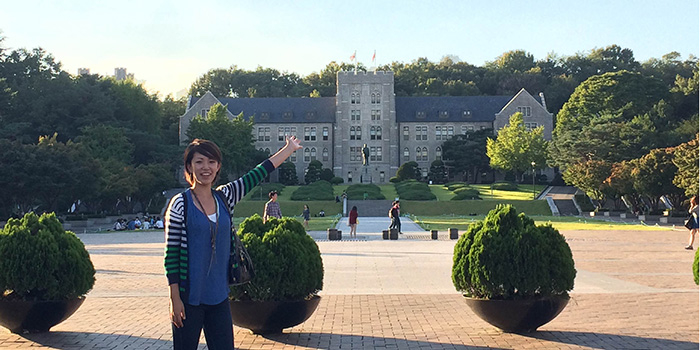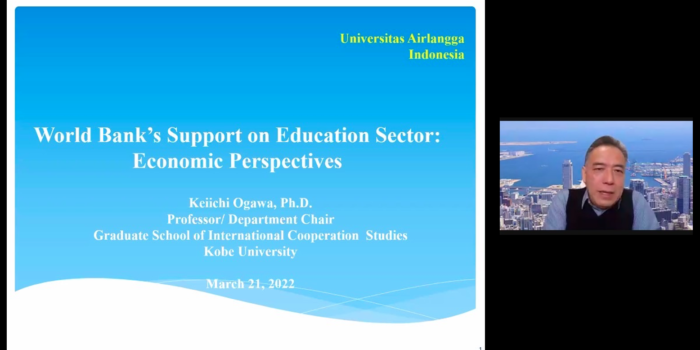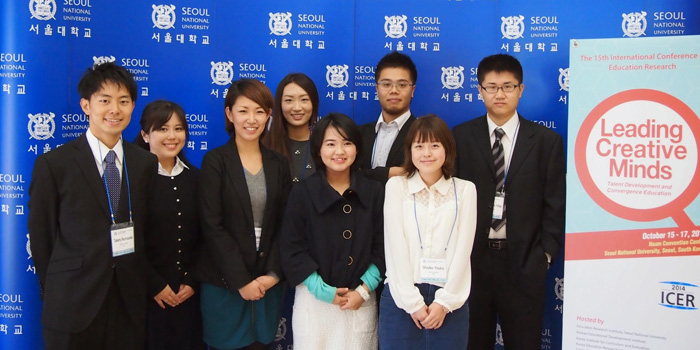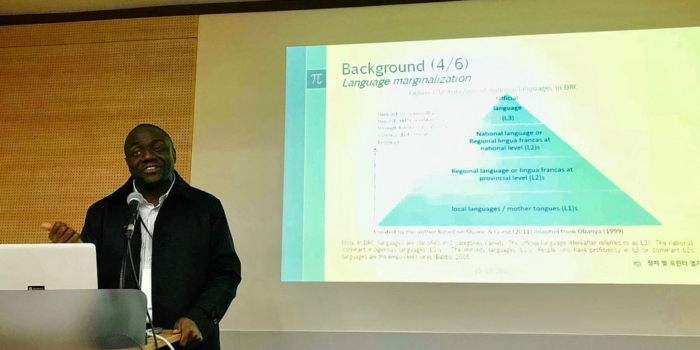This article is a summary of my experience at Korea University in South Korea from August 2014 to July 2015 under a double degree program. The program is an initiative by the three governments of Japan, South Korea and China and it is called “CAMPUS Asia” program. In each of the three member countries, one university participates in the program, such that China is represented by Fudan University, South Korea is represented by Korea University and Japan is represented by Kobe University. While at Korea University, I studied at the Graduate School of International Studies (GSIS) and majored in International Development and Cooperation. I will obtain a master’s degree in International Studies from GSIS in March, 2016.
 Korea University offers two types of master’s degree programs in the fields of International Studies and Korean Studies. The field of International Studies is comprised of four programs namely; International Commerce Track, International Development & Cooperation Track, International Peace & Security Track and Regional Studies Track. I chose International Development & Cooperation as my main track and mainly took classes related to International Development & Cooperation. All lectures are taught in English and their common language is English. Since GSIS is such a very diverse graduate school where most of the students are from abroad with different backgrounds, all the lectures are in English. Every student has to take and pass 6 core classes regardless of his/ her major, and should accumulate a total of 50 credits in order to graduate. Moreover, all the students under the Campus Asia Program have to take at least one class related to Risk management.
Korea University offers two types of master’s degree programs in the fields of International Studies and Korean Studies. The field of International Studies is comprised of four programs namely; International Commerce Track, International Development & Cooperation Track, International Peace & Security Track and Regional Studies Track. I chose International Development & Cooperation as my main track and mainly took classes related to International Development & Cooperation. All lectures are taught in English and their common language is English. Since GSIS is such a very diverse graduate school where most of the students are from abroad with different backgrounds, all the lectures are in English. Every student has to take and pass 6 core classes regardless of his/ her major, and should accumulate a total of 50 credits in order to graduate. Moreover, all the students under the Campus Asia Program have to take at least one class related to Risk management.
During the first semester (August to December 2014), I took 6 classes including International Business (Core Class) and Regional Studies in Africa in the first semester from August 2014 to December 2014. In the second semester (March to June 2015), I took 5 classes (2 core and 3 elective). Some of the thematic of the classes I took were, Educational Development and African Economy. The Educational Development class, in particular helped me deepen my academic knowledge in the areas of EFA, MDGs and Post 2015 Agenda on education development, as well as trends of Korea’s aid toward education. One unique point about GSIS is that their curriculum is made up of different classes, and while some classes are taught by visiting professors and others are taught by researchers from a famous think tank. GSIS highly values participation in class in the form of discussions and presentations as well as writing reports and essays. I was able to develop my communication skill as well as academic writing skill.
 GSIS has various supports initiatives and opportunities for students, such as career development center and internship programs. These support initiatives are instrumental in ensuring that students are exposed to a productive learning environment and cultural experiences. For instance, I participated in JICA internship program in Sudan during the winter break for two months and GSIS offered me credits for internship. Such supportive system at GSIS provides a good study environment. GSIS also has several academic societies run by students where one can have study sessions with many scholars from other institutions and publish in academic journals.
GSIS has various supports initiatives and opportunities for students, such as career development center and internship programs. These support initiatives are instrumental in ensuring that students are exposed to a productive learning environment and cultural experiences. For instance, I participated in JICA internship program in Sudan during the winter break for two months and GSIS offered me credits for internship. Such supportive system at GSIS provides a good study environment. GSIS also has several academic societies run by students where one can have study sessions with many scholars from other institutions and publish in academic journals.
It was such a good opportunity for me to participate in this double degree program. I learned and experienced a lot through this program. I was able to deepen my knowledge and learn different perspectives regarding the history and territorial disputes among East Asian countries. In conclusion, I would like to express my gratitude for all the support I received from everyone involved in this double degree program, especially my academic adviser, Prof. Keiichi Ogawa who encouraged me to participate in this program.
Related Links:
Campus Asia Program in Kobe University
Korea University GSIS
Related








